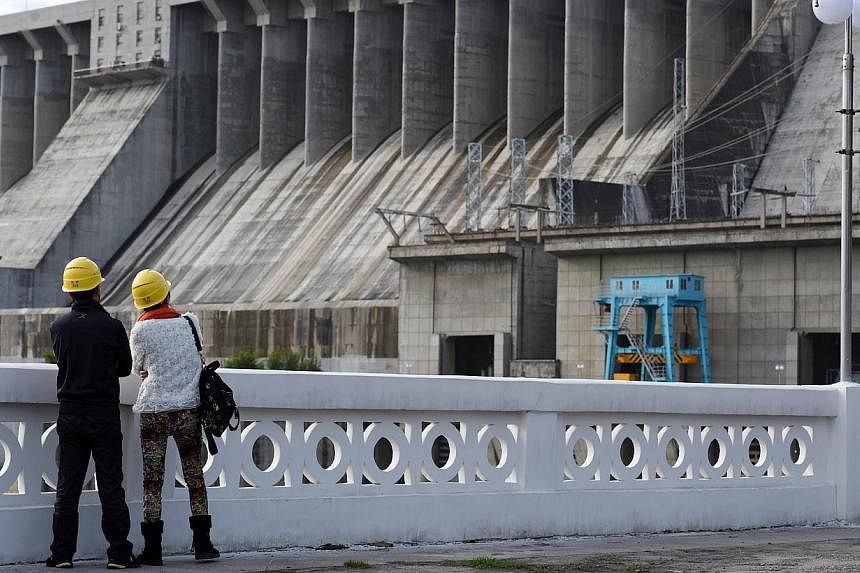BEIJING (AFP) - A multi-billion-dollar man-made river to divert water from China's south to its parched north started to flow on Friday, officials said.
The central route of the controversial South-North Water Diversion Project, one of the most ambitious engineering projects in Chinese history, will carry water from central China to quench the thirst of Beijing and other areas.
The waterway "officially starts to flow today", an official with the Office of the South-to-North Water Diversion Project Commission of the State Council, who declined to be named, told AFP.
A total of 9.5 billion cubic metres of water - or one sixth of the supply of the Yellow River, China's second biggest waterway - will flow north every year from the Danjiangkou reservoir in Hubei province, state broadcaster China Central Television reported.
The route's network of pipelines, canals and waterways is more than 1,400 kilometres long, and the official said the first flows are expected to reach Beijing in around 15 days.
Nearly US$33 billion (S$41.26 billion) has been invested in the central section, which took 11 years to build and has forced more than 330,000 people to relocate, according to Chinese media reports.
The project's eastern route, which uses the 1,400-year-old Grand Canal, began transporting water north from the Yangtze to Shandong province last year.
The Chinese government says the entire scheme, which will ultimately have three routes and a total cost estimated at US$81 billion, will address a chronic shortage in China's northern cities.
But critics express concerns about pollution and say the scheme's success is jeopardised by declining rainfall in the south, while it will only temporarily sate demand in the north.

